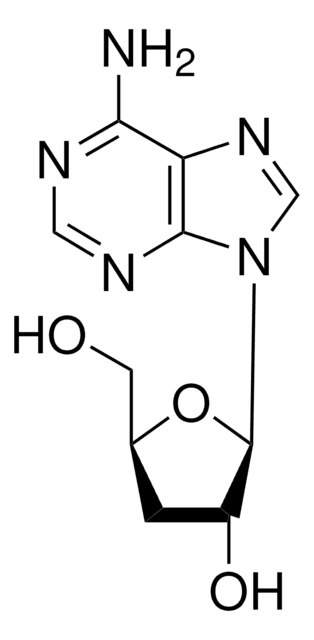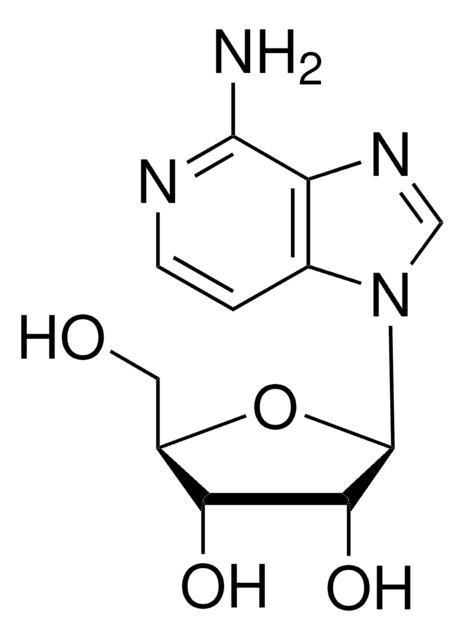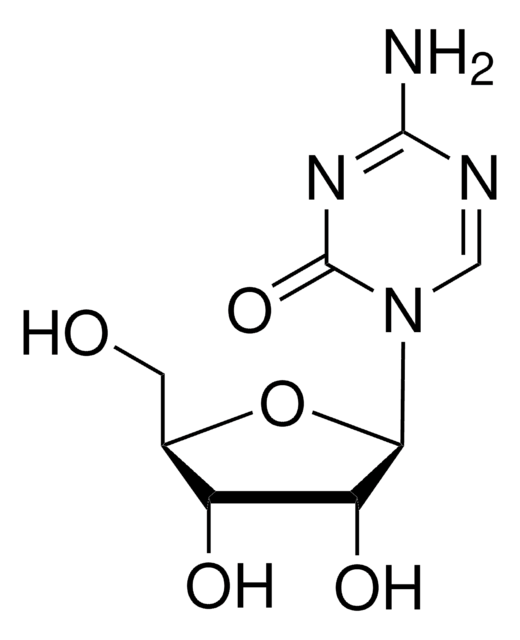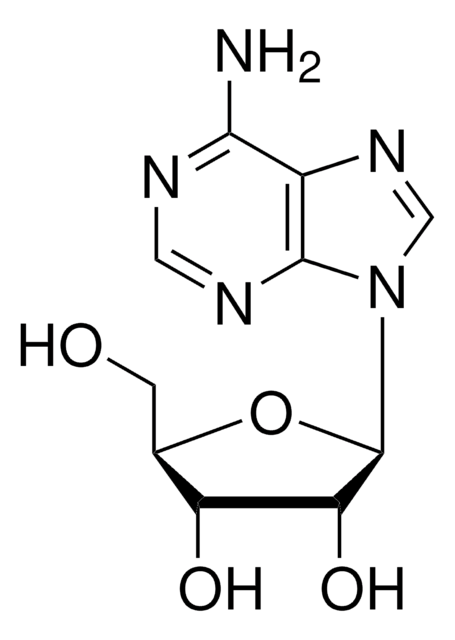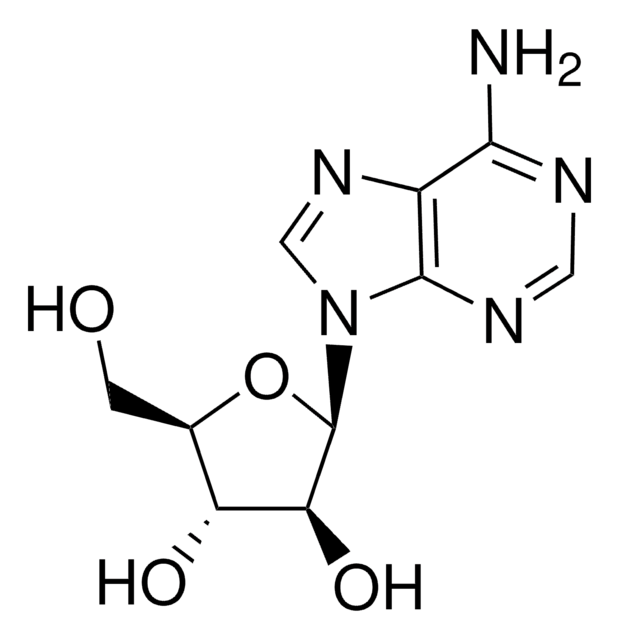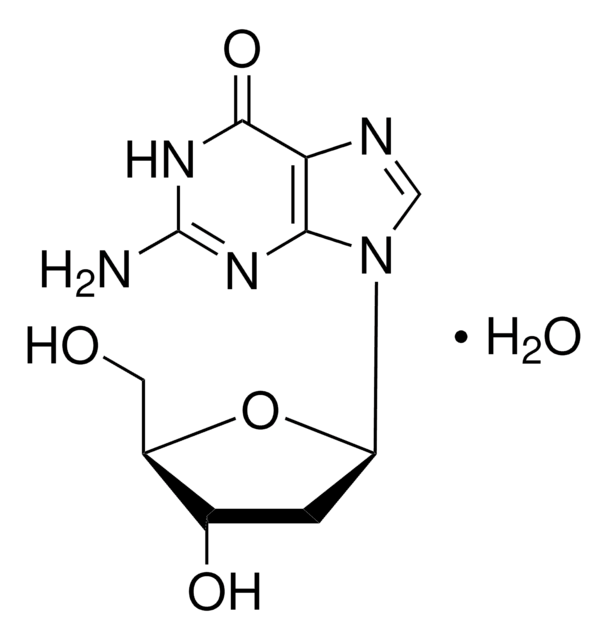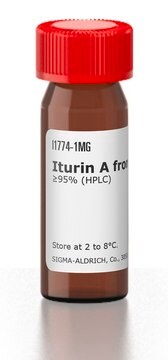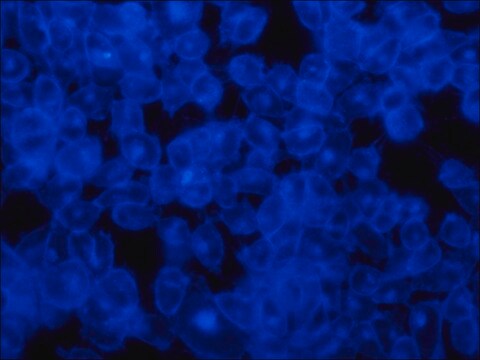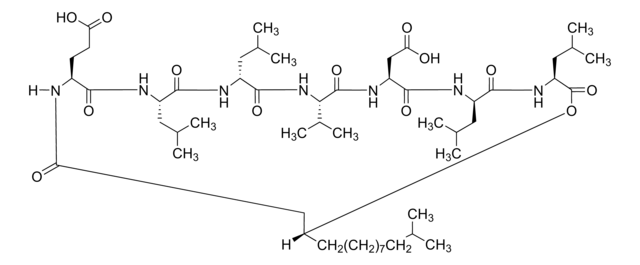SMB00287
Formycin A
from Streptomyces kaniharaensis, ≥98% (HPLC)
Synonym(s):
1-C-(7-Amino-1H-pyrazolo[4,3-d]pyrimidin-3-yl)-1,4-anhydro-(1S)-D-Ribitol, 7-Amino-3-(β-D-ribofuranosyl)-1H-pyrazolo[4,3-d]pyrimidine, 8-Aza-9-deazaadenosine, Formycin, NSC 102811
About This Item
Recommended Products
biological source
Streptomyces kaniharaensis
Quality Level
Assay
≥98% (HPLC)
form
powder
storage condition
(Keep container tightly closed in a dry and well-ventilated place.)
color
white to off-white
solubility
DMSO: soluble 1 mg/mL
H2O: soluble 3 mg/mL
antibiotic activity spectrum
viruses (Antiretroviral)
Mode of action
enzyme | inhibits
storage temp.
−20°C
SMILES string
Nc1ncnc2n(cnc12)[C@@H]3O[C@H](CO)[C@@H](O)[C@H]3O
InChI
1S/C10H13N5O4/c11-8-5-9(13-2-12-8)15(3-14-5)10-7(18)6(17)4(1-16)19-10/h2-4,6-7,10,16-18H,1H2,(H2,11,12,13)/t4-,6-,7-,10-/m1/s1
InChI key
OIRDTQYFTABQOQ-KQYNXXCUSA-N
Gene Information
human ... ADORA1(134) , ADORA2A(135) , ADORA2B(136) , ADORA3(140)
Looking for similar products? Visit Product Comparison Guide
Related Categories
General description
Biochem/physiol Actions
Packaging
Other Notes
Choose from one of the most recent versions:
Certificates of Analysis (COA)
Don't see the Right Version?
If you require a particular version, you can look up a specific certificate by the Lot or Batch number.
Already Own This Product?
Find documentation for the products that you have recently purchased in the Document Library.
Customers Also Viewed
Our team of scientists has experience in all areas of research including Life Science, Material Science, Chemical Synthesis, Chromatography, Analytical and many others.
Contact Technical Service